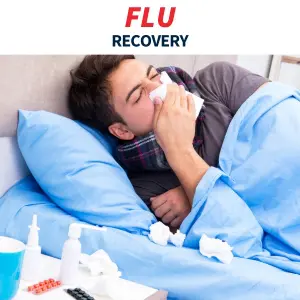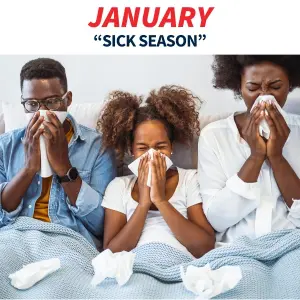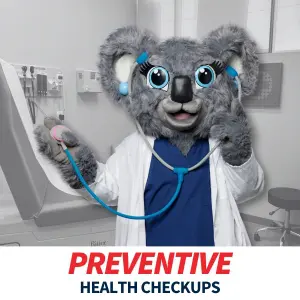Summer means more sun and outdoor fun—but too much sun can lead to sunburn and long-term skin damage. Whether you’re relaxing by the pool, hiking, or grilling in the backyard, it’s important to protect your skin from harmful UV rays. Prolonged exposure increases your risk of skin damage and skin cancer, so moderation and proper protection are essential. The good news? You can reduce your risk by taking simple, proactive steps. Read on to learn how to stay safe in the sun.
Top Tips to Prevent Sunburns and UV Damage
Urgent care providers at Midwest Express Clinic recommend the following sun safety habits:
- Use broad-spectrum sunscreen:
Choose SPF 30 or higher that protects against both UVA and UVB rays. Reapply every two hours or after swimming/sweating. For outdoor activity, look for the appropriate SPF and water resistance to ensure more protection against sun damage. - Wear protective clothing:
Long sleeves, pants, and wide-brimmed hats offer strong protection. Choose tightly woven, dark fabrics. Don’t forget UV-blocking sunglasses to protect your eyes and the surrounding skin. - Stay in the shade (10 a.m.–4 p.m.):
UV rays are strongest midday. Find shade, use an umbrella, or take breaks indoors during peak hours. - Tanning beds:
Avoid tanning bed use as indoor tanning greatly increases your risk of skin cancer and accelerates aging. - Stay hydrated:
Drinking water helps your skin stay healthy, especially in the heat.
Who Is Most at Risk for Sunburn?
Sunburns can happen to anyone, but there are certain groups that are more vulnerable. Individuals with fair skin, freckles or a family history of skin cancer should be especially cautious, as they are at higher risk of developing a sunburn. However, even people with darker skin tones are at risk of UV-related skin damage and should follow sun protection guidelines. Additionally, children and older adults also face increased risk of developing a sunburn. Children have thinner and more sensitive skin, while older adults’ skin is less resilient and slower to heal. That’s why families are encouraged to practice proper sun safety together, regardless of age or other health factors.
Sunburns can affect anyone, but there are certain groups that are more vulnerable—especially those with fair skin, freckles, or a family history of skin cancer. Children and older adults are also at higher risk due to more sensitive or less resilient skin. That’s why families are encouraged to practice proper sun safety together, regardless of age or skin tone.
Windows and Sun Safety: Protecting Your Skin Indoors and in Vehicles
Many people think they’re safe from UV exposure indoors or in a car—but that’s not always true. While standard windows block UVB rays, UVA rays can still get through. These can contribute to premature skin aging, increase the risk of developing skin cancer, and can damage skin cells over time.
If you spend time near windows or drive often, consider installing UV-blocking window film. Wearing sunscreen daily—even indoors—can also protect exposed areas like your face, hands, and arms. If you drive a lot, remember that side and rear windows offer less UV protection than the windshield.
By taking these simple steps, you can reduce your risks and keep your skin healthy, no matter where you are. Remember, sun protection isn’t just for the outdoors—protecting your skin from the sun’s UV rays indoors and in vehicles is an important part of your overall skin health strategy.
When to Seek Urgent Care for a Sunburn
Mild sunburns usually heal with home care—cool showers, aloe vera lotions, and over-the-counter pain relievers like ibuprofen can help. But if you notice blisters, fever, chills, or signs of dehydration, or severe sunburn, visit Midwest Express Clinic for evaluation and treatment. Our providers can assess the severity and help prevent complications.
Midwest Express Clinic: Your Partner in Summertime Wellness
Preventing sunburn is only one part of a broader commitment to maintaining skin health and general wellness. During an annual wellness exam at Midwest Express Clinic, providers can check for unusual moles or skin changes, discuss your sun habits, and give personalized sun safety advice.
Don’t let a sunburn ruin your summer. Midwest Express Clinic is here to help you and your loved ones maintain healthy skin year-round. With over 50 locations open daily across Chicagoland and Northwest Indiana, accessing high-quality, comprehensive care on your schedule is easier than ever.
To find urgent care in your area, visit midwestexpressclinic.com/locations.
Frequently Asked Questions (FAQs)
What SPF sunscreen do doctors recommend?
Broad-spectrum SPF 30 or higher. This level blocks about 97% of UVB rays. For swimming or sweating, choose water-resistant formulas and reapply every two hours.
Can I get sunburned through a window?
Yes. UVA rays can penetrate glass and damage your skin over time. Use sunscreen daily and consider UV-blocking window film.
When should I go to urgent care for a sunburn?
If you have blisters, fever, chills, dehydration, or widespread sunburn, Midwest Express Clinic can assess the severity and provide proper treatment to prevent complications.
Is UV damage reversible?
Some effects like dryness or discoloration can improve with skincare. Long-term damage such as deep wrinkles or increased cancer risk is usually permanent. Prevention is key.
How can I protect my kids from sunburn?
To help prevent sunburn, apply a broad-spectrum sunscreen with SPF 30 or higher that’s safe for kids. For more sensitive areas like the nose, cheeks, tops of the ears, and shoulders, look for products containing zinc oxide or titanium dioxide. When possible, avoid sunscreens with oxybenzone due to concerns about mild hormonal effects. It’s also important to dress your child in lightweight, protective clothing and encourage them to play in the shade, especially between 10 a.m. and 4 p.m. Babies under 6 months old should be kept out of direct sunlight altogether. Ultimately, taking steps to prevent sunburn is what matters most—so using any sunscreen is better than not using one at all.
What should I do if my child gets sunburned?
If your baby is younger than 1 year and gets sunburned, contact their doctor right away. For older children, call your child’s doctor if there is any blistering, pain, or fever. You can give your child pain medicine to help with discomfort—acetaminophen is safe for babies under 6 months, while older children can take either acetaminophen or ibuprofen. Only use medicated lotions if your doctor approves them. Keep your child out of the sun until the sunburn has completely healed to prevent further damage.




